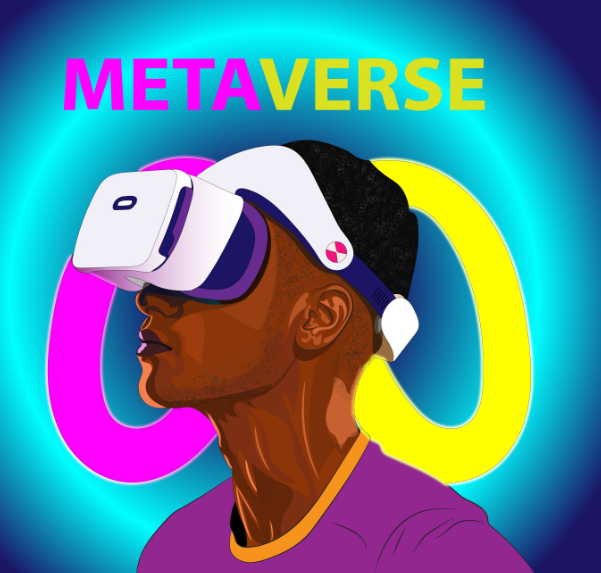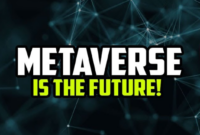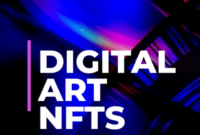bbc.towzdog.com – What Are Metaverse Tokens? Exploring the Future of Digital Assets in the Virtual World In the rapidly expanding world of the metaverse, the concept of metaverse tokens has taken center stage. These tokens are digital assets that power virtual economies, enable unique ownership, and open up new opportunities for users to interact within virtual environments. But what exactly are metaverse tokens, and why are they so crucial to the development of this digital space?
In this article, we’ll explore the basics of metaverse tokens, how they work, and why they’re becoming an essential part of the evolving digital landscape. Whether you’re curious about metaverse technology or interested in investing, this guide will provide a clear and concise understanding of what metaverse tokens are and what they mean for the future.
What Is the Metaverse?
To understand metaverse tokens, it’s essential to start with the basics: What is the metaverse?
The metaverse is a virtual world where people can interact, socialize, work, play, and even make transactions, much like they would in real life. Built on blockchain technology, the metaverse combines aspects of augmented reality (AR), virtual reality (VR), and artificial intelligence (AI) to create immersive digital experiences. Major tech companies, including Meta (formerly Facebook), Microsoft, and Google, are investing heavily in the metaverse, believing it could become a critical part of how we interact online in the future.
Unlike traditional online games or social platforms, the metaverse allows for true ownership of digital assets, thanks to blockchain technology. This is where metaverse tokens come into play, enabling users to own, buy, and trade virtual assets securely and transparently.
What Are Metaverse Tokens?
Metaverse tokens are digital assets or cryptocurrencies that are specifically used within a metaverse ecosystem. These tokens serve as the primary currency in virtual worlds, allowing users to buy and sell digital goods, participate in events, and even earn rewards. Essentially, metaverse tokens give users access to the metaverse and enable them to engage with various activities within virtual spaces.
There are different types of metaverse tokens, each with unique functions and purposes. Here are a few examples:
- Utility Tokens: These are tokens that serve specific functions within the metaverse, such as enabling transactions, buying virtual real estate, or participating in in-game events.
- Governance Tokens: These tokens give holders the right to vote on important decisions within the metaverse, such as platform rules or development updates. Decentraland’s MANA and The Sandbox’s SAND are prominent examples of governance tokens.
- NFTs (Non-Fungible Tokens): While not strictly “metaverse tokens,” NFTs play a significant role in the metaverse by representing unique, non-replicable assets, like virtual land, clothing, or collectibles.
Outlink: For an in-depth look at different types of metaverse tokens, check out Decentraland’s overview of MANA.
Popular Metaverse Tokens and How They Work
Several prominent metaverse tokens have emerged as leading digital assets, each associated with specific metaverse projects. Here are a few of the most well-known tokens and an overview of how they work within their respective ecosystems:
1. MANA (Decentraland)
MANA is the native token of Decentraland, one of the first fully decentralized virtual worlds built on blockchain technology. MANA is an ERC-20 token that users can use to purchase virtual real estate, known as LAND, and participate in other in-world transactions.
2. SAND (The Sandbox)
The Sandbox is a popular virtual world where users can create, own, and monetize their gaming experiences using SAND tokens. SAND is also an ERC-20 token and serves as a utility and governance token. In The Sandbox, users can buy land plots, create games, and earn rewards, all powered by SAND.
3. AXS (Axie Infinity)
AXS is the primary token in Axie Infinity, a blockchain-based game that allows players to collect, breed, and battle digital creatures called Axies. AXS holders can use their tokens for in-game activities, staking, or governance, enabling them to participate in decisions regarding the game’s future.
4. ENJ (Enjin Coin)
Enjin Coin (ENJ) is the native token of the Enjin platform, which enables users to create and manage virtual goods. ENJ is used as a utility token to create NFTs and other digital assets that can be used across different gaming ecosystems within the metaverse.
5. APE (ApeCoin)
ApeCoin (APE) is a relatively new addition to the metaverse, associated with the Bored Ape Yacht Club (BAYC) NFT collection. ApeCoin serves as a utility token in the APE ecosystem, enabling users to buy virtual assets and participate in exclusive events.
How to Buy and Store Metaverse Tokens
If you’re interested in buying metaverse tokens, there are a few steps to follow:
- Choose a Cryptocurrency Exchange: Metaverse tokens like MANA, SAND, and AXS are available on major exchanges such as Coinbase, Binance, and Kraken. Make sure the exchange you choose supports the token you want to buy.
- Set Up a Digital Wallet: After purchasing metaverse tokens, you’ll need a secure digital wallet to store them. Options like MetaMask and Trust Wallet are popular for holding metaverse tokens, especially if you plan to interact with metaverse platforms.
- Transfer Tokens to Your Wallet: For added security, transfer tokens from the exchange to your digital wallet. This step is essential, especially if you intend to use the tokens within the metaverse or hold them long-term.
Use Cases of Metaverse Tokens
Metaverse tokens open up various possibilities within virtual ecosystems, allowing users to engage in unique activities. Here are some common use cases:
1. Purchasing Virtual Real Estate
In virtual worlds like Decentraland and The Sandbox, users can purchase plots of land using metaverse tokens like MANA or SAND. This virtual real estate can be developed, leased, or sold, much like real-world property.
2. Buying Digital Goods and Services
Metaverse tokens are widely used to buy digital assets, such as avatars, virtual clothing, and accessories. In games like Axie Infinity, tokens are required to breed and trade digital creatures, making them an integral part of gameplay.
3. Participating in Events and Experiences
Virtual concerts, art galleries, and social gatherings are increasingly common in the metaverse. Some of these events require entry fees paid in metaverse tokens, creating a new revenue stream for digital event organizers and artists.
4. Staking and Earning Rewards
In some metaverse projects, users can stake their tokens to earn passive rewards. For example, AXS holders can stake their tokens in Axie Infinity to receive rewards, creating a way for users to earn income within the game’s ecosystem.
The Future of Metaverse Tokens
As the concept of the metaverse continues to evolve, metaverse tokens are likely to play an even larger role in digital interactions and online economies. Here are some trends and predictions for the future of metaverse tokens:
1. Increased Adoption by Major Brands
Brands like Nike, Adidas, and Gucci have already started experimenting with the metaverse by releasing virtual products and experiences. As more brands enter the metaverse, they will likely create and use metaverse tokens to engage with customers in digital spaces.
2. Cross-Platform Compatibility
One of the biggest goals for the metaverse is creating a seamless experience where users can carry digital assets across different virtual worlds. As more platforms adopt metaverse tokens, cross-platform compatibility could become a reality, allowing users to use a single token across multiple ecosystems.
3. Integration with NFTs
As NFTs continue to gain popularity, their integration with metaverse tokens could open up new possibilities for digital ownership. NFTs allow for the ownership of unique assets, such as art or collectibles, and combining them with metaverse tokens could lead to more dynamic virtual marketplaces.
4. Regulatory Developments
Governments around the world are taking notice of the growing interest in the metaverse, and regulatory guidelines for metaverse tokens are expected to be developed. Clear regulations could attract more mainstream investors and make the metaverse a safer, more accessible space for everyone.
Conclusion: Why Metaverse Tokens Matter
Metaverse tokens are revolutionizing the way we interact in virtual worlds. By providing a secure, transparent, and decentralized means of transaction, these tokens enable new forms of digital ownership and online interaction. Whether you’re looking to invest in virtual real estate, participate in virtual events, or explore the potential of NFTs, metaverse tokens offer a unique opportunity to engage with the metaverse.
The growing interest in the metaverse indicates that metaverse tokens will likely continue to gain value and importance as the digital economy expands. However, like any investment, it’s crucial to understand the risks and stay informed. With more developments on the horizon, metaverse tokens may soon become an essential part of our digital future.




